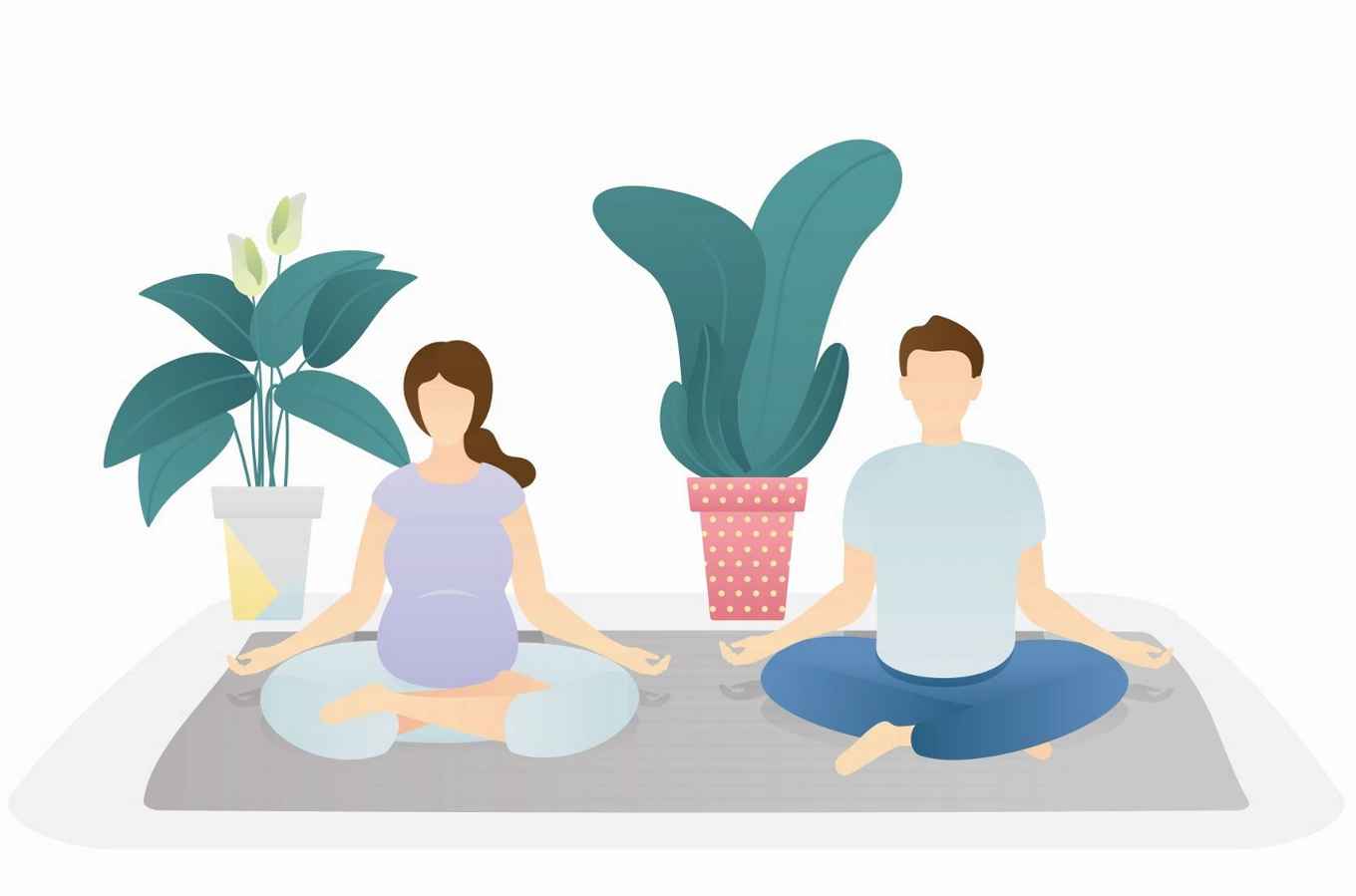Mindfulness training reduces chance of unnecessary caesareans
15 July 2021

The Mindfulness-Based Childbirth and Parenting (MBCP) training was developed by US midwife and mindfulness trainer Nancy Bardacke and focuses on pregnant women who are particularly scared of childbirth.
Fear of childbirth
The study was conducted in a group of 140 pregnant women and their partners. Half of this group received mindfulness training given by trained midwives, the other half received extra guidance for their fears within the usual care. The differences the researchers found between the two groups were marked. The differences were apparent in both the degree of anxiety that pregnant women had before and after the training (measured by internationally recognised and validated questionnaires), and also in the manner in which the women eventually gave birth (based on medical records).
The risk of excessive fear of childbirth according to the widely used W-DEQ scale decreased by 36% for the women who received the mindfulness training. Catastrophizing about labour pain also decreased significantly in the mindfulness group compared to the control group, while acceptance of the physiology of the labour pain increased substantially.
During childbirth, participants from the mindfulness group used epidural anesthesia 36% less than the control group, and 51% underwent fewer non-medically urgent caesarean births. The Apgar score (a test to get a quick impression of a newborn baby's general condition) of the infant after one minute was higher in the mindfulness group, but this effect was no longer significant after five minutes.
Reduction of non-medically urgent interventions
Irena Veringa: 'The findings of the study are of great importance worldwide for the care of pregnant women and newborns. One of the World Health Organisation’s main aims in this area is the reduction of fear of childbirth, which in turn reduces the number of non-medically necessary interventions during labour. The use of medical interventions during childbirth worldwide has increased enormously. Of course, this is a good thing when it comes to women's access to urgent medical care, but it is worrying when it comes to non-urgent medical procedures, as these can also have adverse consequences for mother and child.’
A caesarean birth always has health risks for the mother and increases the risks of complications in the next pregnancy, Veringa explains. 'Children born by caesarean section have an increased risk of allergo-immunological problems, asthma and obesity later in life.'
Half of the children in China and Brazil and a third of children in the United States are now delivered by caesarean section. In the Netherlands, where this study took place, there has also been an increase in referrals for non-urgent medical interventions during childbirth. 'The results of the study point the way towards a simple method for reducing fear of childbirth, allowing women and their partners to take more control over the birth and greatly reducing non-urgent medical treatments,' says Veringa.
The researchers believe that their study could offer a new perspective for strengthening midwifery care and for integrating the medical and psychosocial care aspects during pregnancy and birth.
Publication details
Irena Veringa, Esther de Bruin, Bonny van Steensel, Susan Bögels: ‘Fear of Childbirth, Non-urgent Obstetric Interventions, and Newborn Outcomes: A Randomised Controlled Trial (I’ve Changed My Mind) Comparing Mindfulness-based Childbirth and Parenting with Enhanced Care as Usual’, in Birth (11 July).